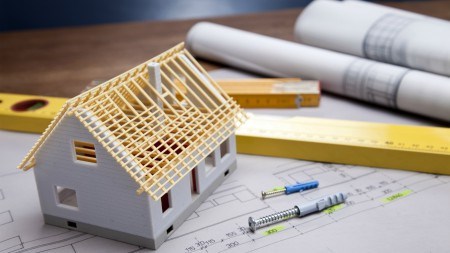Current legislation does not specify the requirement of occupancy certificates for renovations, as it does for new buildings. However, a Parliamentary Review Process is well underway to also include renovations, says NHBRC Public Relations Manager Conrad Mors. He says the portfolio committee has provided feedback to council, and although a lengthy process, the process is expected to come under review again by the third quarter of 2013. The review will then be opened for public comment, and if successful home renovations will require certification by next year. Mors says the review has taken into consideration the New Consumer Protection Act, as well as provisions for it to be in line with international home inspection practices.
Up to now and in the absence of occupancy certificates for additions and alterations, although generally associated with improvements, certified knowledge of the safety and practical workings thereof, has been nobody’s business. Current law also does not specify the requirement for occupancy certificates when homes change hands, for purchase or rent, irrespective of the frequency rate of new occupants. In addition is the fact that municipalities do not insist on electrical inspections when issuing electrical clearance certificates to new occupants. As long as payment is reflected, whether electrical installations are deemed safe or not, electricity is re-connected. No inspections are required, despite extensive property damage caused in the course of problematic occupancies that in some cases result in lawful evictions.
When properties are sold, or when new tenants move in, there is no legal requirement other than unpaid bills to prohibit municipalities from re-connecting electricity. This despite older houses changing hands, many times over. As long as electrical clearance certificates are on hand, and as long as new occupants make deposits for re-connection and continue their payments, there will be power. Older houses, apartments, and additions are exposed to various risks, such as electrical faults caused due to wear and tear, water damage, faulty materials, or inferior workmanship.
Mors says a formal, independent regulating governing body for the home inspection industry in South Africa is not yet in place. The move to certify renovations is advisable, particularly in view of the shift of responsibility, onto purchasers in the New Consumer Protection Act. ‘Voetstoots’ between developer and buyers, or between sellers and buyers, or between auctioneers and sellers, refers to a service rendered in a consumer relationship, and one where “goods must serve the purpose for which it has been bought”. Whereas transactions concluded through real estate agents, are deemed as professional business transactions, and joint responsibility.
It would make sense then, that when in doubt about the safety aspects of any building element of a future property purchase, private buyers would consider paying for the cost of independent building inspections. Although expert inspections cannot exonerate sellers of all responsibility, specialist inspection companies, while acting in the best interest of their customers, should carry insurance against public liability.
At present, such operators hold no formal accreditation, but rather years of building experience, industry involvement, and membership to affiliated organisations. Says John Froneman, partner at Inspectahome, industry stalwarts of over 20 years, that for the average cost of R20.80 per m2 of under roof area, or approximately R3500 for an average 150m2 house, a factual inspection report including independent repair recommendations, can be provided. He says high standards, in line with international criteria are upheld, through membership to the National Association of Certified Home Inspectors (American) NACHI, and the American Society of Home Inspectors (ASHI),
Such memberships alone do not assure credibility, but rather the overall level of workmanship throughout the building industry, and ideally through the workings of an independent regulatory body to also oversee the safety of re-sold and rented homes.



